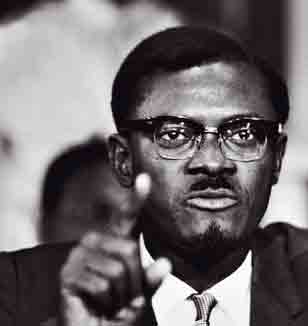Regional
The DRC crisis and void left by Patrice Lumumba's assassination

Patrice Lumumba was the first Prime Minister of the Republic of the Congo, now the Democratic Republic of Congo (DRC).
Lumumba
assumed the premiership of independent Congo in 1960, a position he only held
for a few months - from June to September.
Lumumba,
elected by popular support in May 1960, was assassinated in January 1961 under
the orders of Western powers that wanted to continue plundering Congolese resources.
Lumumba
was a brave politician. He struggled to end Belgian colonial rule
which plundered the natural resources of Congo and killed millions of citizens.
He was an African nationalist who envisaged a united Congo without
discrimination. He advocated for the resources of Congo to benefit Congolese
people rather than being siphoned by foreign countries; a sad situation that
has not changed until today. Lumumba advocated for a united Africa to fight evils
of colonialism.
His participation in the All-African Peoples’ Conference in
Ghana, in 1958, invited by Kwame Nkrumah, strengthened his Pan-Africanist ideas
while Belgian colonialists marked him as a dangerous person who antagonized
their interests.
Why was Lumumba killed?
After independence, in June 1960, the Belgians influenced a
mutiny in the army which is believed to be the genesis of the Congo crisis.
Lumumba appealed for help from the UN and the United states to deal with the
mutiny that was created by the Belgians but little did he know that the
conspiracy to eliminate him was widely shared by those from who he sought help.
According
to history books, the UN and U.S refused to help Lumumba since “the Belgian
government had convinced them that Lumumba was a communist, anti-white and
anti-Western.
These
suspicions deepened when Lumumba turned to the Soviet Union for
assistance, which the CIA described as a “classic communist takeover.”
The
Belgians further plotted and created conflict between Joseph Kasavubu who was President
and Joseph Mobutu who was the army chief of staff. Western interests led by the
Belgians supported Mobutu to carry out a military coup and oust Lumumba. Lumumba
was later captured, imprisoned and executed in the presence of Belgian
officials.
First,
his body was buried in a shallow grave. But the Belgians ordered that the body
be exhumed and dissolved in acid. That’s how cruel Western powers – that are
fond of lecturing African countries on human rights – killed Lumumba.
His
inhumane execution marked the beginning of a dysfunctional DRC that persists
today.
Lumumba’s
vision for Congo
On
June 23, 1960, before the chamber of Deputies, Lumumba delivered a strong
speech promising to uphold national unity and abide by the will of the people,
describing his foreign policy as neutral.
His
government was inclusive; with members from different classes, tribes and
diverse political beliefs.
Lumumba
thought and believed that independence would bring about improvement in the
quality of life for the Congolese people and unify the country by eliminating
tribalism and regionalism.
Role
of international community
The
death of Lumumba was planned and executed by Western powers to stop DRC from
getting a patriotic organized leader, whose vision was to eliminate tribalism,
and improve the quality of life for the Congolese people.
The
two principles threatened the interests of Western powers who divided Africans in
order to loot and plunder their natural resources.
The Western
powers replaced Lumumba with Mobutu who acted as their cadre in sinking DRC
into poverty.
The
current DRC situation
Today,
under Felix Tshisekedi, DRC is more than a failed state.
The country is among the five poorest nations in the world.
According to the World Bank figures, in 2022, nearly 62 percent of Congolese,
around 60 million people, lived on less than $2.15 a day and about one out of
six people living in extreme poverty in Sub Saharan Africa lives in DRC.
However, DRC's untapped mineral deposits are estimated
at $24
trillion, and those that are exploited benefit a
few cronies of Tshisekedi and foreign companies.
The security situation instead of improving only gets worse.
On August 30, at least 48 people were killed by government
forces in Goma, the capital of North Kivu Province, while thousands of militias
and the Rwandan genocidal force, FDLR, have been supported and supplied with
arms to cause chaos under Tshisekedi’s orders. Foreign mercenaries have left
the government treasury empty on false promises of solving the security crisis
especially in the vast country’s volatile east.
Lumumba’s assassination left a void in DRC governance that
has never been filed.
More
than 60 years after Lumumba’s death, his vision for DRC still remains a dream.
The
country has not yet produced any other leader who is capable of realizing his
great vision of a united country, with its vast natural resource wealth benefiting
all Congolese people.


